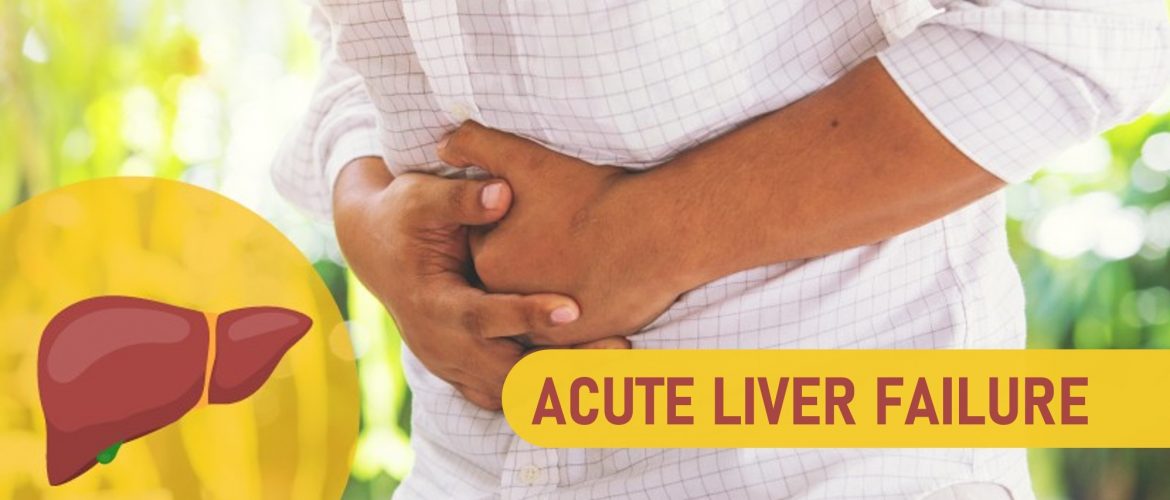Acute Liver Failure (ALF) is the appearance of severe complications rapidly after the first signs (such as jaundice) of liver disease, and indicates that the liver has sustained severe damage (loss of function of 80–90% of liver cells).
This causes the liver to fail to work as it should. As a result, patients may become less alert or even go into a coma.
Depending on the cause, acute liver failure can sometimes be reversed with proper treatment and medications. But in many situations, a liver transplant may be the only cure.
Causes
Acute liver failure occurs when liver cells are damaged significantly and are no longer able to function. Potential causes include:
Overdose of Acetaminophen
Taking too much acetaminophen (Tylenol, others) is the most common cause of acute liver failure. This can happen if a person is given the wrong dose of medicine or if too much is taken in a short amount of time.
Hepatitis and other viruses
Hepatitis A, hepatitis B and hepatitis E can cause acute liver failure. Other viruses that can cause acute liver failure include Epstein-Barr virus, cytomegalovirus and herpes simplex virus.
Other causes of acute liver failure are:
- Metabolic conditions (problems with the healthy physical and chemical processes inside the liver)
- Infections / viruses
- Immunological dysfunction
- Cardiovascular conditions (causing a lack of blood supply to the liver)
SEE ALSO: Non-Alcoholic Fatty Liver Disease – Why You Should Know More About It
Symptoms
Signs and symptoms of acute liver failure may include:
- Yellowing of your skin and eyeballs (jaundice)
- Pain in your upper right abdomen
- Abdominal swelling
- Nausea
- Vomiting
- A general sense of feeling unwell (malaise)
- Disorientation or confusion
- Sleepiness
Diagnosis for Acute Liver Disease
Blood tests. Blood tests are done to determine how well your liver works.
Imaging tests. Your doctor may recommend an ultrasound exam to look at your liver. Such testing may show liver damage and help your doctor determine the cause of your liver problems.
Biopsy: Liver biopsy involves removing a small piece of liver tissue and analyzing it to determine the cause and extent of liver damage.
Treatment for Acute Liver Disease
Acute liver failure is a medical emergency and the patients are usually treated in the intensive care unit. Your gastroenterologist may try to treat the liver damage itself but in many case treatment involves in controlling the complications due to liver disease.
Acute liver failure treatments may include:
Medications to reverse the damage. Drugs to reverse the effects of toxins and reduce liver damage are prescribed depending on the identified cause of liver failure. It may also help treat other causes of acute liver failure.
Liver Transplant. If the liver failure cannot be reversed with medications and other treatment procedures, the doctor may suggest the liver transplant.
See a gastroenterologist or liver disease specialist in Ahmedabad…
Acute liver failure can develop quickly in an otherwise healthy person, and it is life-threatening. If you or someone you know suddenly develops a yellowing of the eyes or skin; tenderness in the upper abdomen; or any unusual changes in mental state, personality or behavior, seek medical attention right away.





No comments yet.